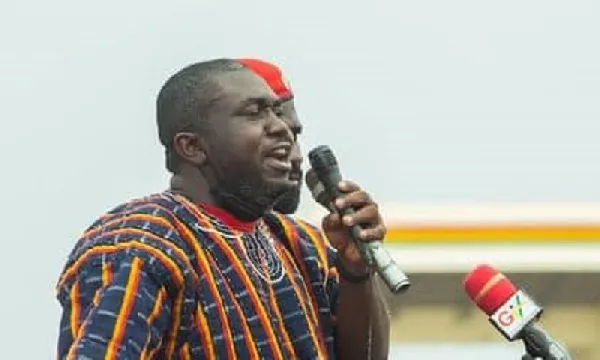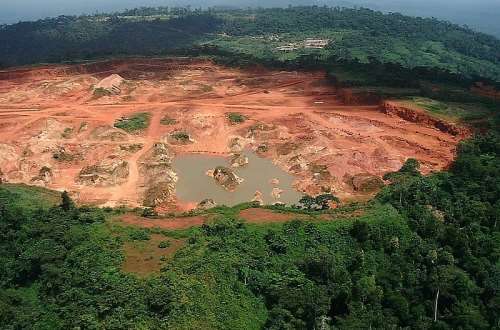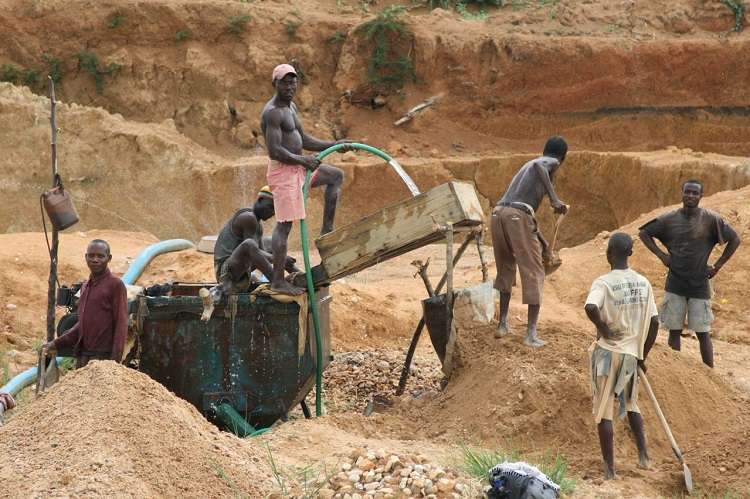Ghana’s illegal mining crisis—commonly referred to as galamsey—has found yet another lightning rod in Oliver Barker-Vormawor, a lawyer and political activist who has launched a scathing critique of the country’s institutional failure to confront environmental abuses.
The keyword galamsey has dominated headlines for years, but Barker-Vormawor’s latest remarks underscore what many see as a deeper malaise: state complicity.
In a fiery statement, Barker-Vormawor referenced a recent admission by the Minerals Commission that Akonta Mining, a company with close political links, operated with “three leases…never ratified by Parliament” and “without a single environmental permit.”
He argued that the commission’s prolonged silence is deeply troubling, suggesting either complicity or a failure to uphold its duty at a critical moment.
“After all these years of complaints, protests, media reports, and petitions— they’re only now finding their voice? They knew all along and chose to stay silent. No action. No sanctions. Just bureaucratic indifference cloaked in press releases.”
Oliver Barker-Vormawor
This public confession by the commission did not sit well with Barker-Vormawor, who has become known for his relentless calls for institutional accountability.
For him, the revelation is not a breakthrough, but a grim validation of the systemic rot that has plagued Ghana’s regulatory apparatus.

“Ghana is suffering not just from corrupt politicians, but from spineless bureaucrats — people who collect salaries, enjoy perks, accept bribes, and then look the other way while the nation burns.”
Oliver Barker-Vormawor
He accused the Environmental Protection Agency (EPA), the Forestry Commission, and the Minerals Commission of betraying their mandates.
Institutions Called Out On Galamsey
In an unusually bold step for someone of his stature, Oliver Barker-Vormawor openly challenged these institutions, naming them directly and refusing to soften his criticism—a move that underscores the gravity of his concerns.
“From the Environmental Protection Agency to the Forestry Commission to the Minerals Commission — you have collectively disgraced yourselves. You have betrayed the public trust. And you have let this country down.”
Oliver Barker-Vormawor

The harsh critique comes at a time when many citizens feel helpless in the face of worsening environmental degradation. Rivers are poisoned. Forests are stripped. Communities are displaced.
And yet, government agencies—tasked with preventing such destruction—continue to shirk responsibility.
While politicians frequently bear the brunt of public frustration, Barker-Vormawor argued that the deeper crisis lies within the very institutions meant to uphold the law and safeguard public interest.
He emphasized that focusing solely on political actors while ignoring the entrenched dysfunction within regulatory and oversight bodies misses the true source of the problem.
According to him, the institutional rot runs so deep that meaningful change will only come when accountability is enforced within these power structures, not just on the surface of partisan politics.
His statements tap into a growing sentiment in the country: that rule enforcement is not just weak—it’s selective, and often nonexistent.
Another Committee On Galamsey Rejected
In what may be his most pointed criticism yet, Barker-Vormawor took aim at the government’s repeated reliance on ad hoc committees to manage public scandals and deflect outrage.
He argued that the practice has become a tired and ineffective ritual—one that creates the illusion of action while delivering little in terms of justice.

Instead of endless investigations and temporary distractions, he insisted that the country needs meaningful consequences for wrongdoing.
True accountability, he stressed, demands more than symbolic gestures; it requires decisive action, transparency, and the political will to hold powerful individuals and institutions to account.
“And [we need] a purge of the institutions that have made it their business to protect criminals instead of the environment.”
Oliver Barker-Vormawor
The calls for reform are not new, but what makes this latest critique resonate is its sense of urgency and moral clarity.
Barker-Vormawor’s voice has grown into one of the most unrelenting on the subject, refusing to let powerful actors hide behind procedure.
His rallying cry—“DRAIN THE SWAMP. RESET”—may echo global populist slogans, but in Ghana, it rings with a unique truth. Institutions meant to serve the public interest are instead enabling criminality and ecological collapse.
And while the law exists on paper, its enforcement remains in the shadows.
As the galamsey menace tightens its grip on Ghana, voices like Barker-Vormawor’s remind the public that the fight isn’t just against miners with shovels—it’s against bureaucrats with pens who refuse to act.
Unless Ghana’s institutions are held to account—fully and publicly—then public trust, already fraying at the seams, may erode beyond repair.
For many, the words may be controversial, but the underlying call for accountability is long overdue.
READ ALSO: GoldBod Kick-Starts Licensing of Service Providers




















